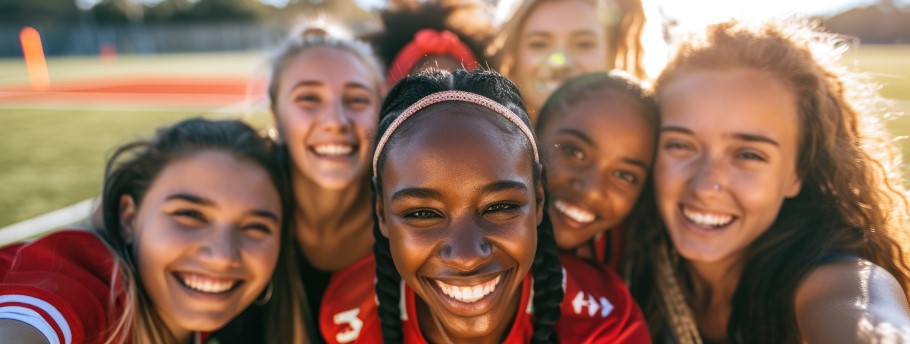
Supporting your elite sporting students
Many of your students compete and perform in a range of sports, either as an individual athlete or within a team. For those with sporting talent, going to university is a chance to develop their sporting ability, whilst also getting a degree.
Sport opportunities at university
Your students may compete at a county level,
represent their country, or play for a local
league. Regardless of their current ability, there will be a
sporting opportunity that suits them at university.
For competitive sports, your students can
take part in matches against other universities.
Inter-university competitions are run by British
Universities and Colleges Sports (BUCS). Your students
can check the BUCS league of their preferred sport
to see which universities are
competing at a high level.
For some students, it makes sense to explore
sporting opportunities in the local area that suit
their needs better. Most universities will have
partnerships with local clubs. In some
cases, academics and coaches who work
for the university may also play for local or national
teams.
At the University of Winchester, we
have a strong partnership with one of the
largest athletics clubs in the UK based on membership numbers.
Prospective students wouldn't
necessarily know that without a bit of research.
Your students may need assistance identifying
which universities are linked to certain sports,
particularly when associated with teams or
clubs in the area.
Sport support at university
The Talented Athlete Scholarship Scheme (TASS)
is a funding programme backed by Sport England.
TASS supports young sports players and athletes
seeking to gain qualifications whilst also
achieving their sporting goals.
Schemes such as
these recognise that undergraduates involved
in elite sport need extra support to balance
the needs of their studies with their sporting
commitments. For example, students who have been
away at competitions or training camps will need to
access resources and catch-up sessions with
teaching staff if they missed the original lectures.
Most universities are flexible about the balance between
studying, competing, and training for their elite sports players.
However, if the course is demanding -
perhaps a work placement is required - then students need
to consider whether they will enjoy balancing
sport and studying. Their broader university
experience will be shaped by the time committed
to training and academic study.
Sport scholarships at university
Many institutions offer sport scholarships and bursaries.
These are often competitive and the numbers
are limited. Rather than handing out money,
many scholarships help students attend competitions,
physiotherapy sessions in university facilities,
and afford a gym membership.
It’s important
that your students include this in their research,
so encourage them to check university websites
before they apply. Often, the support isn't
confirmed until students have accepted the
university as their firm choice.
Sport facilities at university
Great facilities can make a huge difference to
training. It's important for your students to consider the
way they train now, but also how this may change
as they progress with their career. This might
be the practical aspects such as pools, athletic
tracks, or accommodation with a gym. Or it could
be the expertise of coaching staff to hone
their athletic talents.
For your elite sporting students, advise them
to dig a little deeper into the support, facilities, and
opportunities outside their degree study. These
can have a significant impact on their career
prospects.
